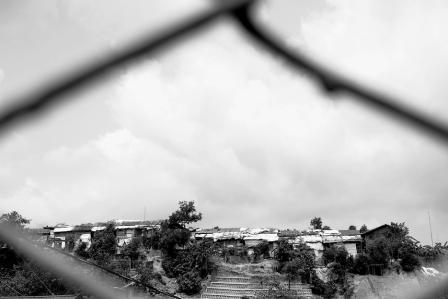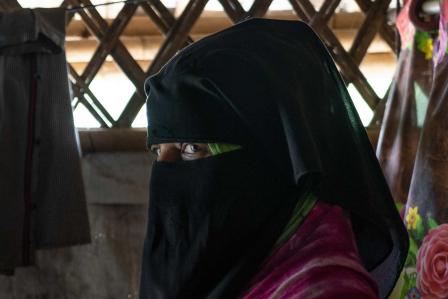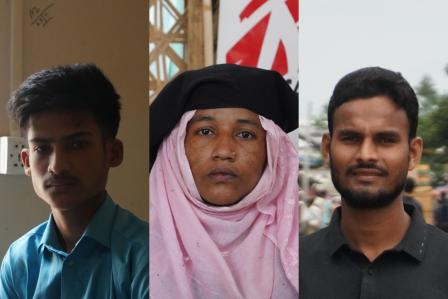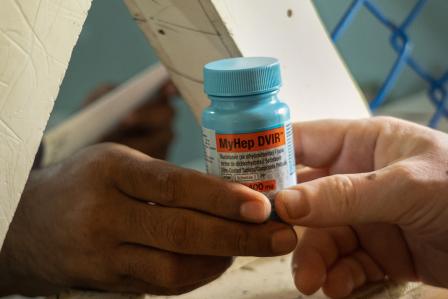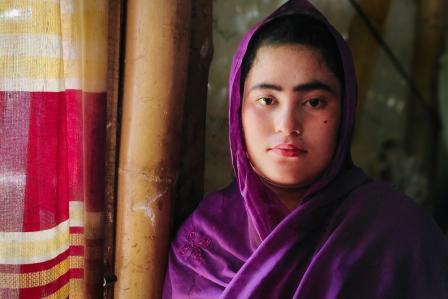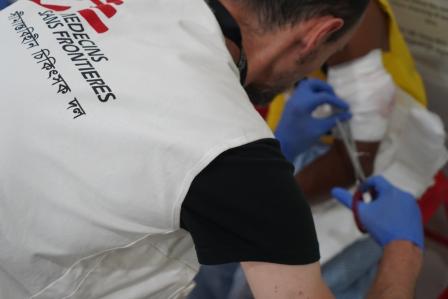Bangladesh: Scabies outbreak affecting hundreds of thousands in Cox’s Bazar refugee camps
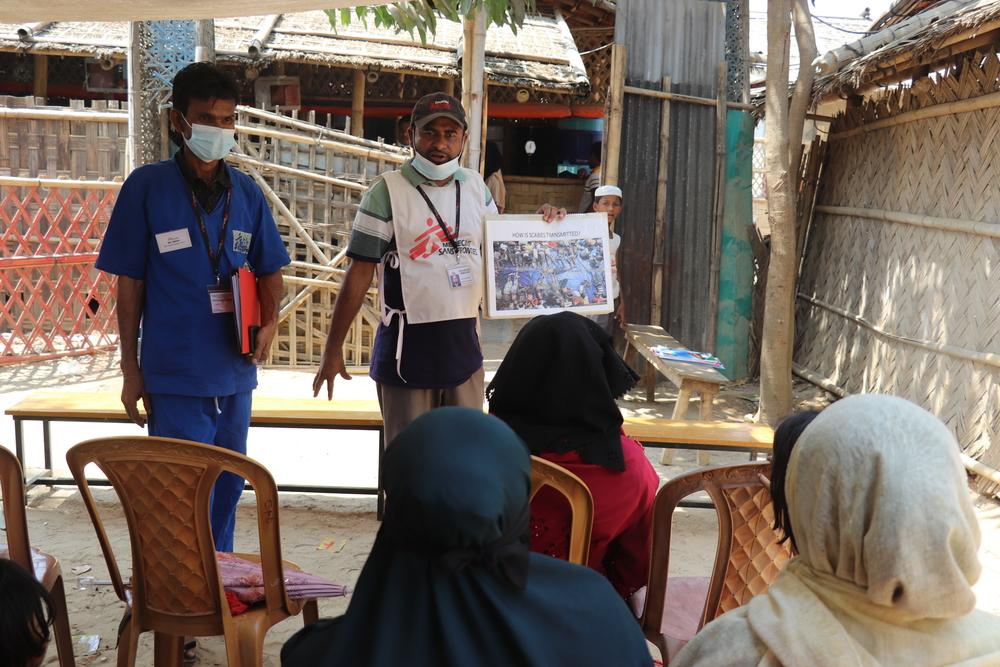
Doctors Without Borders’s health promotion volunteer providing sessions to the patients who came to Jamtoli clinic for medical consultation. Bangladesh, March 2023. © Farah Tanjee/MSF
An outbreak of scabies, a skin disease, is affecting hundreds of thousands of Rohingya living in refugee camps in Bangladesh’s Cox’s Bazar district, demanding an urgent response, says international medical organisation Doctors Without Borders / Médecins Sans Frontières (MSF). To bring the outbreak under control, the response needs to be fast and comprehensive and include improvements to water, sanitation and hygiene within the camps, says Doctors Without Borders.
Scabies is easy to treat but can cause severe physical and mental effects if left untreated. The usual treatment involves drugs applied to patients’ skin, clothes and home environments to eliminate the parasite that causes the infestation, but Doctors Without Borders warns that in this case drugs will not be enough and that the source of the outbreak needs to be tackled.
“There have been recurrent discussions about a mass distribution of drugs within the camps to tackle the current outbreak, but drugs alone will not prevent reinfections if they are not accompanied by measures addressing the unsanitary conditions which have caused the outbreak,” says Karsten Noko, Head of Mission of Doctors Without Borders in Bangladesh.
Doctors Without Borders teams in the camps have treated increasing numbers of patients with skin diseases in recent years. In March 2022, they started to see unusually high numbers of patients with scabies, since when the numbers have rocketed. Between January and May this year, Doctors Without Borders teams in the camps treated almost 70,000 patients for scabies – nearly double that of the same period in 2022.
The situation remained the same until January 2023 and we have been alerting about this while having a huge workload to respond to this increase. Our team was seeing an increased number of patients and from February 2023 they decided to redirect patients to the health facilities close to their respective camps "At the moment, we cannot treat everyone who comes in with scabies – we just don’t have the capacity” says Paul.
“Our four-year-old son has had scabies since last December,” says Ajmot Ullah, a member of the Rohingya community living in the camps. “He started having rashes on his hands and then on his whole body. We spent money on doctors and pharmacies and eventually he got better, but he was reinfected with scabies very quickly. He doesn’t sleep much, his whole-body itches, especially at night, and he cries a lot from the pain. My other two sons also have scabies, and my wife and I have symptoms too. It has become a nightmare for my family.”
Doctors Without Borders in Bangladesh conducted a study on water and sanitation conditions in the Rohingya refugee camps last year and it shows the situation is concerning. We see there is lack of proper sanitation and insufficient availability of water. While we see a considerable amount of water and sanitation infrastructure improvements over the last two years (installation of water networks, chlorination), there is degradation in the maintenance - There are fewer functioning latrines than previously.
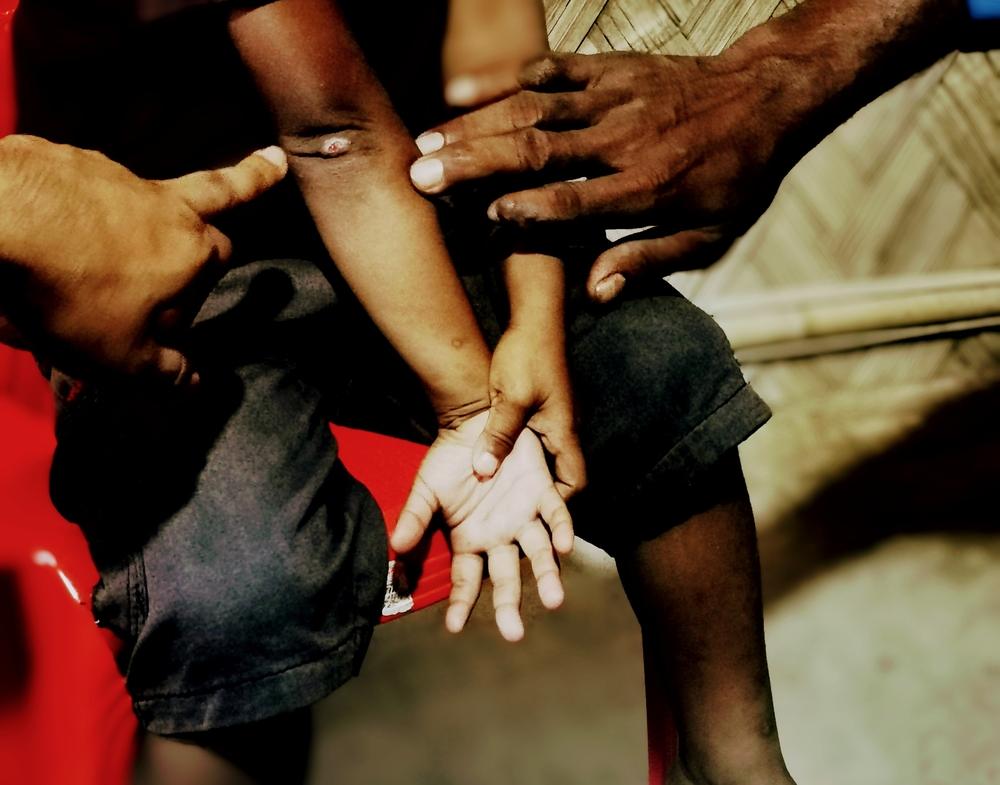
A young patient from Rohingya refugee camp is visiting Doctors Without Borders’s Jamtoli facility to seek treatment of scabies. Bangladesh, June 2023. © MSF/Malvoisin
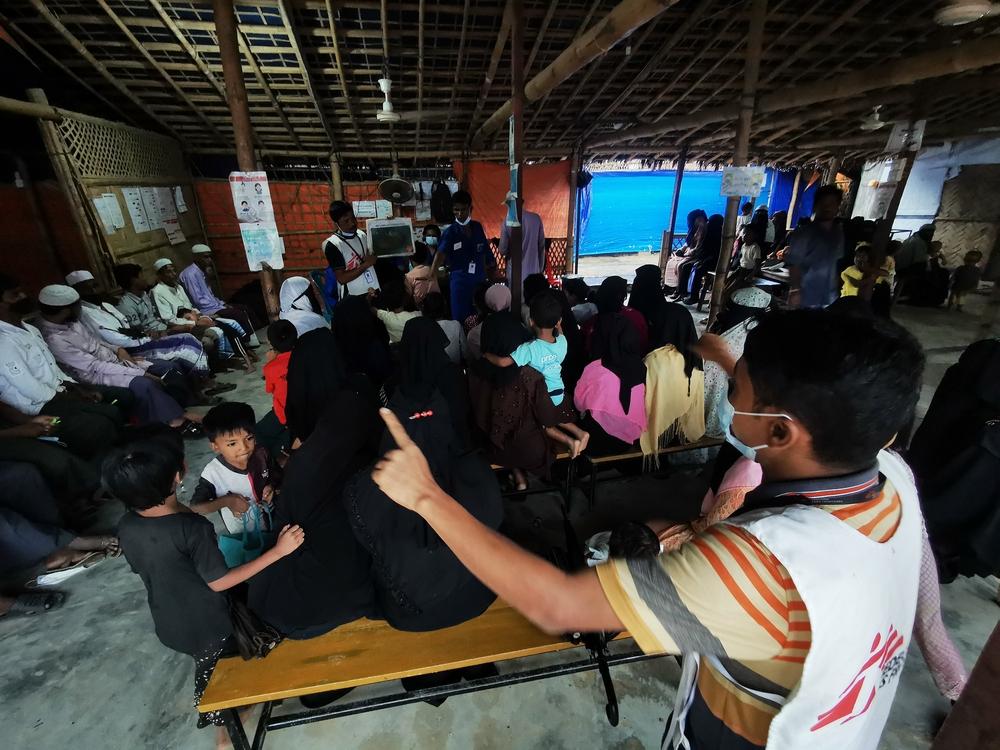
Doctors Without Borders community-based health promotion volunteer raises awareness on scabies in the clinic’s waiting area. 1 June 2023, Jamtoli Clinic, Ukhiya, Cox’s Bazar, Bangladesh.
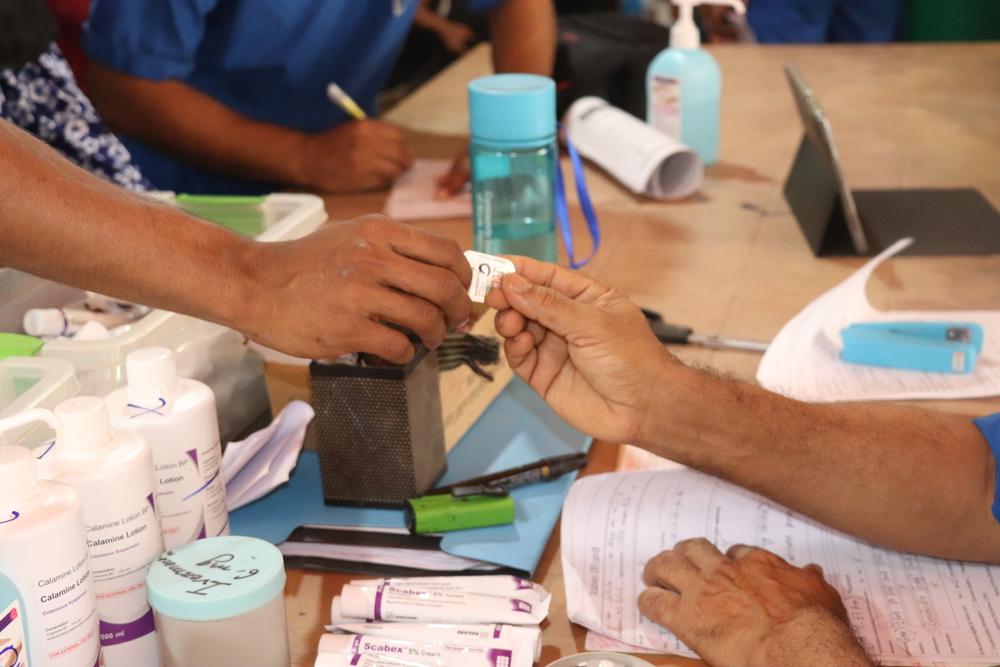
A patient suffering from scabies is taking medications and listening to the medicine dispensers about when and how to take medications at Doctors Without Borders’s Jamtoli clinic’s scabies outpatient department. Bangladesh, March 2023. © Farah Tanjee/MSF
In some areas, people have access to water for just two hours per day. This is due to poorly functioning water systems but also linked to water rationing under the misconception that groundwater resources are being depleted by the refugee population, which has been refuted by specialised monitoring and modelling of these water sources. Last month, refugees’ soap rations were cut from two bars per month to just one bar. .
“We do not have enough space,” says Taher, an 18-year-old refugee living in Jamtoli camp. “I have tried my best to maintain hygiene standards, but it is hard. We share bedding, we share clothes, we share everything. Now we share scabies too.”
This out-of-control scabies outbreak is happening in a context of reduced funding for Rohingya refugees in Bangladesh, including cuts to their food rations. Even before the reduction in funding, the level of services provided by aid agencies within the camps did not meet the refugees’ needs. Of particular concern to Doctors Without Borders is people’s lack of access to health facilities in the camps that are fully staffed and supplied with sufficient medicine.
“A 40 per cent positivity rate for scabies is the ‘canary in the coal mine’ moment, telling us that the underlying health and sanitation response in the camp is not functioning and that it risks further threats to the wellbeing of the Rohingya people and the local community in Cox’s Bazar,” adds Noko.


